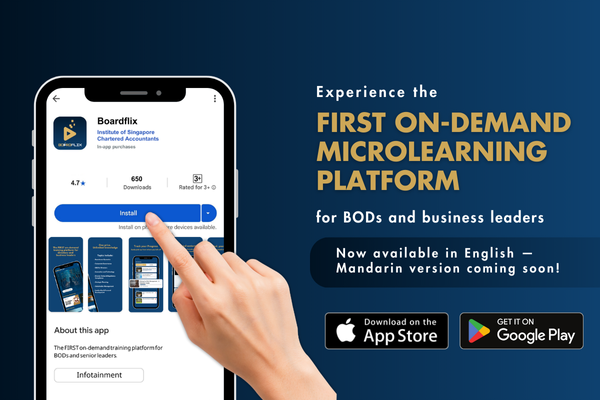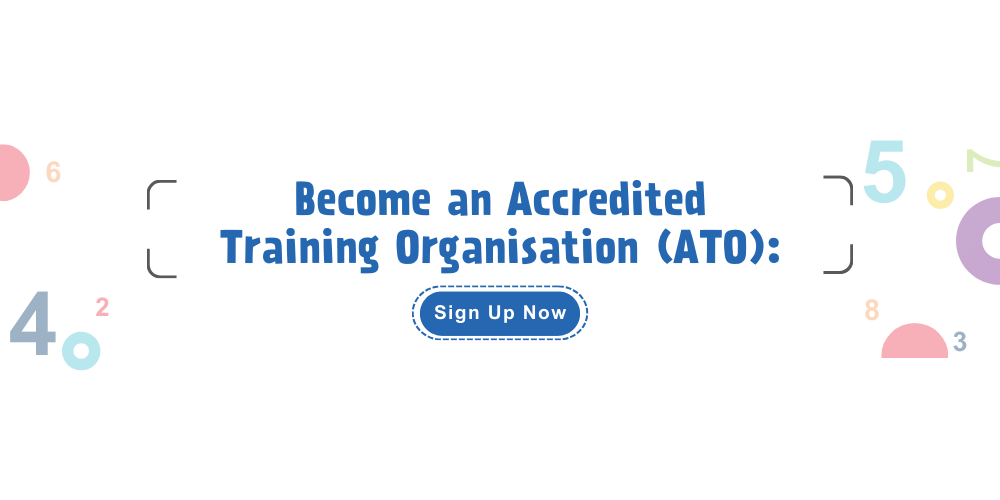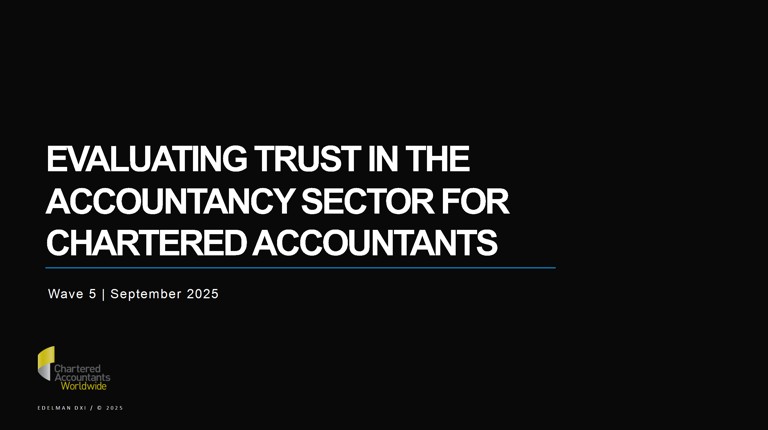
Better Decisions, Stronger Impact: Master Financial Stewardship
The Financial Stewardship for Charities is one of the training programmes under “GovernWell: Excellence in Charity Leadership,” brought to you by the Office of Commissioner of Charities (COC) and Charity Council. This programme is designed to empower directors of non-profit organisations (NPOs) with advanced financial stewardship capabilities.
The programme consists of 9 eLearning modules (20 hours in total) available on Boardflix.
All attendees will also receive exclusive invites to 2 in-person case studies session (available after programme completion).

100% eLearn, anytime anywhere
Access bite-sized modules on mobile app and web. Available in English — Mandarin version coming soon!

Up to 80% funding support
Offered under the Charities Capability Fund (CCF) training grant to enhance your financial stewardship skills

Curated by industry leaders
Designed to bring real-world knowledge to help you navigate challenges and drive meaningful outcomes
Programme Modules
Synopsis: To empower participants with the skills to manage non-profit finances through effective resource allocation, strategic financial planning, budgeting and forecasting and cash flow management. To share common financial management challenges faced by NPOs.
What's covered?
This module provides an essential overview of NPOs, covering their legal structures, governance, and the importance of financial transparency. Participants will gain insights into Singapore’s charity landscape, including the roles of regulatory bodies like the Commissioner of Charities.
Explore key financial statements used by NPOs, including fund-based presentation and disclosure notes. It also examines core financial elements—revenue sources (donations, grants, fees), expenses, assets, liabilities, and net assets—along with the tracking and reporting of reserve and designated funds.
Be introduced to accounting principles specific to NPOs, including fund accounting (restricted vs. unrestricted funds), revenue recognition, and differences between Charities Accounting Standard (CAS) and Financial Reporting Standards (FRS) in grant accounting.
Gain insights to cost allocation methods, distinguishing direct and indirect costs, and the importance of accurate overhead allocation for transparency and accountability.
Synopsis: To equip participants with a comprehensive understanding of financial governance in NPOs, including stakeholder roles, policy development, and the relationship between financial governance and performance.
What's covered?
Understand the importance of financial governance and principles from the Code of Governance—accountability, transparency, and stewardship.
Learn about the roles and responsibilities of key stakeholders: the board’s fiduciary duties, the finance committee’s oversight, and the contributions of donors, the community, and government. Emphasis is placed on avoiding conflicts of interest, with guidance from regulatory frameworks.
Explore the development and implementation of financial policies, including budgeting, reserves, procurement, and conflict-of-interest policies.
Examines the relationship between financial governance and organisational performance and how good governance is foundational to sustainability. Tools such as financial dashboards and the Charity Transparency Framework are introduced to help track governance effectiveness and support long-term impact.
Throughout this module, participants will examine case studies, and learn how strong governance builds donor trust and ensures regulatory compliance. It outlines practical steps for creating effective policies aligned with regulations, supported by real-world examples.
Synopsis: To empower participants with the skills to manage non-profit finances through effective resource allocation, strategic financial planning, budgeting and forecasting and cash flow management. To share common financial management challenges faced by NPOs.
What's covered?
Learn about the best practices on financial management for NPOs, and understand the need to align resources with mission goals and performance outcomes.
Explore the importance of long-term planning and the consequences of poor financial strategy. Explore essential components of a successful strategic plan—such as stakeholder involvement, a clear fundraising approach, and financial sustainability.
Understand the budgeting and the role of forecasting in enhancing financial responsiveness.
Examine the importance of a Board-approved reserve policy and cashflow management in ensuring long-term stability.
Identify financial challenges such as budget cuts, performance tracking, cost control, funding limitations, and the need for robust internal controls to maintain financial health and accountability.
Synopsis: To provide NPO directors with an overview of the regulatory and compliance requirements for financial reporting, an understanding of how to navigate audit processes, and effective risk management and internal controls in NPOs.
What's covered?
In this module, participants get to analyse and interpret charity financial statements and the use of financial ratios to assess liquidity and sustainability. Gain practical insights through case studies in identifying risks and analysing financial health.
Understand the roles of ACRA, IRAS, and the Commissioner of Charities, emphasising the importance of timely, transparent reporting. Learn about filing obligations, donation and tax reporting, GST issues, and compliance with the Code of Governance. Examine compliance challenges and penalties from real-life case study illustration.
Explore financial reporting standards applicable to charities, including SFRS, the Charities Accounting Standard, and IPSAS, and how these standards support transparency. Gain insight into the key audit processes—statutory, internal, and financial reviews—are discussed, along with the respective responsibilities of management and the Board during audits.
Dive into risk management and internal controls, understanding the importance of safeguards like segregation of duties, approval processes, and fraud prevention. Learn about COSO Framework with case examples of fraud and procurement control systems.
Synopsis: To equip NPO directors with the essential knowledge and skills to understand and comply with Anti-Money Laundering, Countering the Financing of Terrorism, and Counter Proliferation Financing (AML/CFT/CPF) regulations, enabling them to effectively mitigate financial crime risks within their organizations.
What's covered?
Be introduced to the fundamentals of Anti-Money Laundering (AML), Countering the Financing of Terrorism (CFT), and Counter Proliferation Financing (CPF).
Understand the key laws that criminalise Money Laundering (ML), Terrorism Finance (TF) and Proliferation Financing (PF), and how it applies to the Charity Sector.
Explores risk assessment strategies, focusing on identifying risks across stakeholders, jurisdictions, and delivery channels, with strategies for mitigation.
Learn about the significant of due diligence for individuals and entities and the monitoring controls.
Define Suspicious Transaction Reporting (STR), including reporting timelines, escalation, confidentiality, and filing with the Suspicious Transaction Reporting Office (STRO), supported by a case example.
Outlines operational requirements like record keeping, staff training, and internal audits, reinforcing the importance of a strong AML/CFT/CPF compliance framework.
Synopsis: To empower NPO directors to develop and implement ethical and effective fundraising strategies, learn best practices in grant management, understand donor stewardship and reporting and leverage technology to achieve sustainable financial support.
What's covered?
Gain insights into ethical and effective fundraising strategies for charities, through the principles of ethical fundraising. Explore strategic approaches such as diversifying income sources, tailoring donor engagement, and addressing challenges like donor fatigue.Understand the development of structured fundraising plans, identifying donor segments, and selecting appropriate methods while adhering to the Fund-Raising Regulations under the Charities Act.
Learn about grant writing, including crafting proposals in alignment with fund goals, budget, grants compliantly, and report impact. Recognise the common pitfalls, such as poor financial management and misaligned objectives.
Explore donor stewardship and offering strategies to build long-term relationships through personalized communication, impact reporting, and accountability practices aligned with the Code of Governance.
Examine technology tools to enhance fundraising efficiency—such as online platforms, CRM systems, virtual events, and blockchain applications—with guidance on selecting tools based on organisational needs and size. Analyse case studies illustration on successful campaigns and the measurable impact of adopting digital solutions.
Synopsis: To enable NPO directors to develop and implement sound investment policies and strategies, encompassing asset management, risk mitigation, and responsible investing practices, to ensure the long-term financial sustainability of their organizations.
What's Covered?
Examine effective investment policies and strategies, beginning with the development of an Investment Policy Statement (IPS) that defines financial objectives, risk tolerance, and return expectations. Explore governance best practices, including the roles of the board, management, and investment committees.
Distinguish investment strategies for both capital preservation and long-term growth, taking into account fund types like endowments and reserves. Explain the value of strategic asset allocation and diversification in maximising returns while minimising risk.
Identify and mitigate market, credit, and liquidity risks, and apply the use of KPIs and ongoing portfolio reviews to ensure sound oversight.
Explore responsible investing, highlighting ESG principles and impact investing to align with the charity’s mission and ethics. Delve into Transparent investment reporting, in line with the Code of Governance for Charities and IPCs, to ensure accountability to stakeholders and protect the charity’s reputation.
Synopsis: To empower NPO directors to appreciate the importance of IT infrastructure and cybsersecurity and to understand how to select accounting and finance systems which are best suited for various NPOs and to strategically leverage technology for digital payments, data protection, and the responsible adoption of automation and AI.
What's covered?
Explore how charities can leverage digital tools and technology to enhance financial operations. Delve into cybersecurity best practices, such as endpoint protection, multi-factor authentication (MFA), and single sign-on, supported by relevant case studies.
Gain insight into various accounting and financial systems to improved efficiency, accuracy, and reporting. Learn about effective system implementation, covering project planning, process reviews, system configuration, and common pitfalls.
Understand the importance of digital payment solutions for both incoming and outgoing transactions through real-world case examples.
Examine the obligations around managing sensitive and personal data, ensuring alignment to data protection laws and best practices.
Recognise emerging technologies, including Robotic Process Automation (RPA) and Artificial Intelligence (AI), and how charities can begin their automation journey while addressing potential data security concerns.
Synopsis: To empower NPO directors to provide effective financial leadership, cultivate a robust financial culture, build strong finance teams, implement essential financial disciplines, strategically structure the finance function, and ensure leadership continuity through succession planning.
What's covered?
Explore the foundations of financial leadership within non-profit organisations, focusing on cultivating a strong financial culture and implementing strategic approaches to align finance with organisational goals. Be introduced to the People-Process-Technology framework as a guide for building effective finance teams.
Define key financial disciplines, including establishing robust internal controls and maintaining a consistent operational cadence.
Learn how to create and structure a finance function, evaluating the pros and cons of in-house versus outsourced models, depending on resources and needs. Gain insight to sustainable financial processes that support accountability and transparency.
Recognise the importance of succession planning and leadership development within the finance function to ensure continuity and long-term resilience.

Programme Fees (Applies to both English and Mandarin versions)
.png?sfvrsn=b9afc14f_0)
*Note: This course is subject to approval for the Charities Capability Fund (CCF) training grant. CCF Funding is only eligible for Corporate-Sponsored Individuals who are registered to the programme by their Organisation and subject to the eligibility criteria here.
- CCF funding is NOT applicable for Individual Registration with no Corporate Sponsor and Group Packages.
- For CCF funded participants, please ensure to complete the programme by 7 May 2026 to be eligible for the funding.
- ISCA may withhold certification issuance in the event of incomplete claims submission and funding ineligibility.





.png?sfvrsn=dd675fd5_2)

.png?sfvrsn=7844d69f_0)
6a6c7fe2013f4be3b0ecc0a5930da5c9.jpg?sfvrsn=ab5334c8_0)

/business-management-global-connection/istock-1167579720-c.jpg?sfvrsn=ff93f9a5_2)
/audit-assurance/istock-1169206203-c.jpg?sfvrsn=1d6f9b25_6)


/ethics-and-professionalism/istock-1141115724-c.jpg?sfvrsn=4e54d691_2)

/audit-assurance/istock-818732836-c-v3.jpg?sfvrsn=ae44e7b7_0)

.png?sfvrsn=905ee1bd_0)
/legal-secretarial/istock-866706340-c.jpg?sfvrsn=d7f57b8c_2)
.png?sfvrsn=c855e7fb_0)